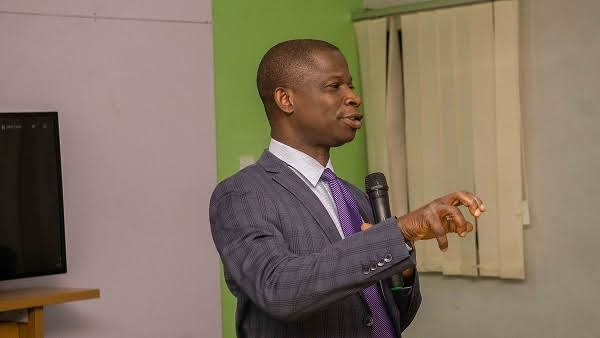Read the journey of Nigeria’s agricultural sector and its potential for growth and learn about the Nigeria Agribusiness Group (NABG’s) efforts to uplift farmers and create employment opportunities.
Over the past decade, Nigeria’s agricultural sector has faced significant challenges despite various attempts by previous governments to improve its productivity. Factors such as insurgency, lack of affordable inputs for farmers, and other obstacles have hindered the sector’s progress.
However, research indicates that agriculture engages around 70% of Nigerians, highlighting its critical role in providing employment opportunities and driving economic growth. To address these issues and expand the frontiers of agricultural development, the Nigeria Agribusiness Group (NABG) has emerged as a leading civil society organization dedicated to growing Nigeria’s agricultural economy.
Role Of Nigeria Agribusiness Group (NABG)
The NABG, comprising influential business players in the agricultural sector, collaborates with local and global donor agencies and works closely with the government to enhance Nigeria’s agricultural economy. By creating an enabling environment for private capital investment and focusing on broadening the frontiers of agricultural growth, the NABG aims to lift millions out of poverty and generate employment opportunities for the country’s youth.
The Pre-Presidential Technical Meeting
Recently, the NABG organized a pre-presidential technical meeting to evaluate the agricultural sector’s performance over the past eight years. The objective was to set an agenda for the upcoming presidential roundtable summit, scheduled to take place in Abuja. The meeting brought together key partners, including Harvest Plus, the International Fertiliser Development Centre (IFDC)/HortiNigeria, the International Institute for Tropical Agriculture (IITA), and the Global Alliance for Improved Nutrition (GAIN). These stakeholders engaged in insightful discussions to identify critical areas for the sector’s development.
Objectives Of The Technical Meeting
The technical meeting served as a platform to bring together diverse perspectives and foster collaboration among stakeholders. The key objectives included shaping policies, exploring emerging trends, promoting sustainable agribusiness development for the next four years, and encouraging open and constructive dialogue on pressing issues in Nigeria’s agribusiness sector. Through evidence-based discussions, participants aimed to address challenges and develop innovative solutions while sharing their insights and experiences.
Focus Areas For Agricultural Development
The technical meeting aimed to lay the groundwork for the upcoming presidential roundtable summit, focusing on key aspects such as the digital transformation of the sector, integration of the value chain, and enhancing national food security. Participants delved into topics such as agric technologies, precision agriculture, market trends, consumer preferences, and the assessment of environments conducive to sustainable farming practices. Furthermore, the meeting highlighted the need to review agricultural policies, regulatory landscapes for export and global trade, logistics in farm-to-table movements, and addressing post-harvest losses and weak storage facilities.
The Importance Of Collaboration And Support
Recognizing the significance of collective efforts, stakeholders emphasized the crucial role of collaboration in achieving food security and improving nutritional outcomes. The Country Manager of Harvest Plus, Yusuf Dollah, stressed the importance of maintaining and sustaining food production quality for both local consumption and exports. Dr. Michael Ojo, the Country Director of the Global Alliance for Improved Nutrition (GAIN), emphasized the need to address malnutrition, food insecurity, and limited economic opportunities, especially for the 80% of Nigerians facing these challenges.
Supporting Smallholder Farmers And Incentives
To transform agriculture and support smallholder farmers, stakeholders highlighted the necessity of creating an enabling environment and investing in requisite technologies. Dr. Michael Ojo, Country Director of GAIN, emphasized the role of governments and relevant stakeholders in providing incentives and support to smallholder farmers. Dr. Abdullahi Umar, the representative of IFDC/HortiNigeria, pledged their willingness to collaborate and partner with the NABG in advancing the growth of the agricultural sector in Nigeria.
The Planned Presidential Retreat
Building on the collaborative efforts of the NABG and other stakeholders, the upcoming presidential retreat holds the promise of unveiling new strategies for Nigeria’s agricultural development. In the face of challenges posed by climate change, it is imperative to take deliberate measures to address the issues affecting agriculture. One potential game-changer is the proposed project to recharge Lake Chad by channeling the Bangi River, which could create opportunities for massive agricultural production and establish agro-industrial corridors and hubs for the export of food and agro-allied products.
Climate Change Policies And Opportunities
The NABG has been actively involved in climate change policies, collaborating with the National Council for Climate Change and other critical stakeholders. Agricultural activities contribute significantly to Nigeria’s national determined contributions (NDCs), making it crucial to develop implementation frameworks for climate-smart agriculture. Such frameworks, when ratified and implemented, will guide policy efforts and provide tools for monitoring and evaluation. Furthermore, Nigeria has the potential to leverage carbon trading opportunities, enabling communities to adapt and build resilience while benefiting from economic mobilization.
Looking Ahead To The Presidential Roundtable Retreat
As Nigeria eagerly awaits the first presidential roundtable retreat on agribusiness, there is a growing sense of optimism that the country is poised to unleash its agricultural potential. The NABG, along with its partners, aims to present a comprehensive report to the new administration, highlighting the challenges hindering the sector’s development and providing actionable recommendations. By walking the talk and fostering collaboration among stakeholders, Nigeria can pave the way for sustainable growth and unlock the immense opportunities within the agricultural sector.
The agricultural sector plays a crucial role in Nigeria’s economy, and there is a pressing need to overcome the challenges that have hampered its growth. The Nigeria Agribusiness Group, in collaboration with local and global partners, is committed to driving the country’s agricultural development by creating an enabling environment, fostering collaboration, and implementing innovative solutions. The recent pre-presidential technical meeting and the upcoming presidential roundtable summit offer valuable platforms for stakeholders to shape policies, address critical issues, and explore opportunities for sustainable agribusiness. With collective efforts and a renewed commitment to agricultural advancement, Nigeria can embark on a transformative journey towards realizing its agricultural potential and ensuring food security for its citizens.









